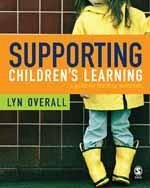Nicht lieferbar

Supporting Children′s Learning
A Guide for Teaching Assistants
Are you looking for a book that explains all the key ideas on how children learn, and how to best support children in that learning? Covering all the major themes, this book offers: o An introduction to the main theories of learning and development, from birth to primary; o A chapter on brain development; o An introduction to what motivates learners to learn, and how much learners understand about how learning takes place; o A glossary of key terms; o Case studies, research summaries, tasks for reflection, chapter summaries and advice on further reading. This book will be essential reading for...
Are you looking for a book that explains all the key ideas on how children learn, and how to best support children in that learning? Covering all the major themes, this book offers: o An introduction to the main theories of learning and development, from birth to primary; o A chapter on brain development; o An introduction to what motivates learners to learn, and how much learners understand about how learning takes place; o A glossary of key terms; o Case studies, research summaries, tasks for reflection, chapter summaries and advice on further reading. This book will be essential reading for Teaching Assistants studying for Foundation Degrees, or for the Higher Level Teaching Assistant qualification. Students on any course looking at how children learn (such as Early Childhood and teacher training courses) will likewise find this book covers all the key themes. Lyn Overall is Principal Lecturer at Sheffield Hallam University.





